On Holiday from your life, not from your lifestyle!
Delays and changes in normal routines, sitting rather than being active, excitement and lack of sleep. All of this can affect your blood glucose.
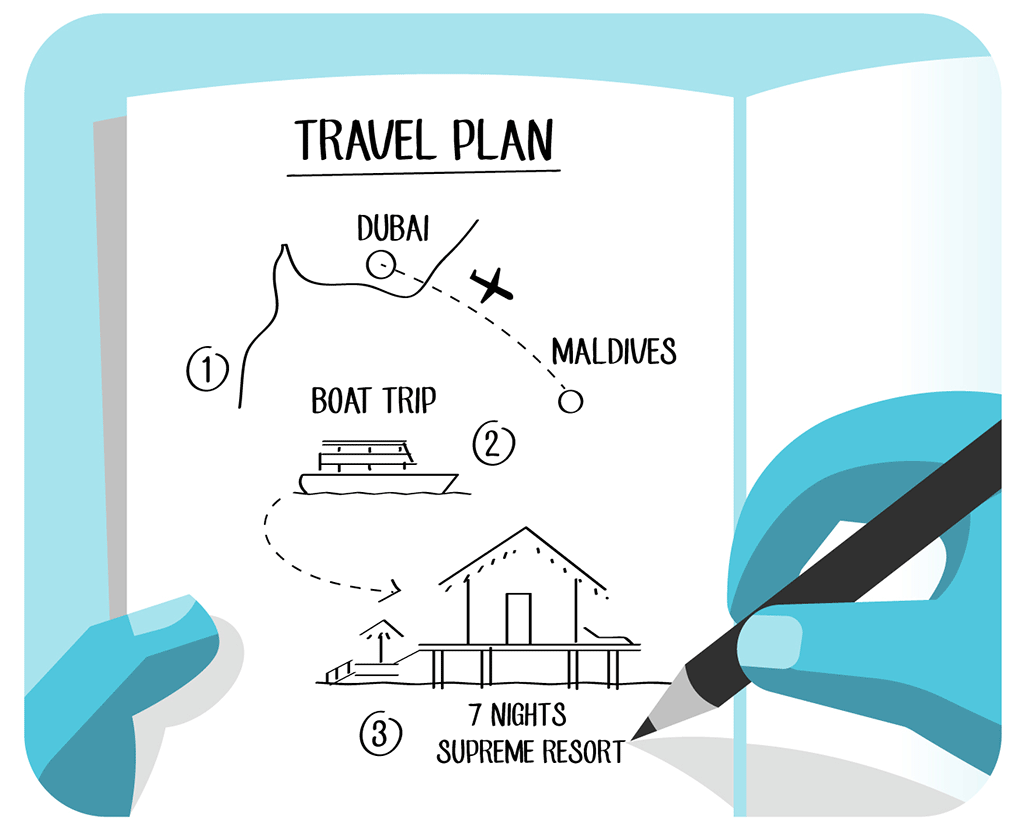
Whether you’re traveling by land, air, or sea, here are some smart travel tips.
Identify Yourself
Wear your medical identification that says you have diabetes along with the information for an emergency contact. Remember to carry your medical insurance card and travel medical coverage.
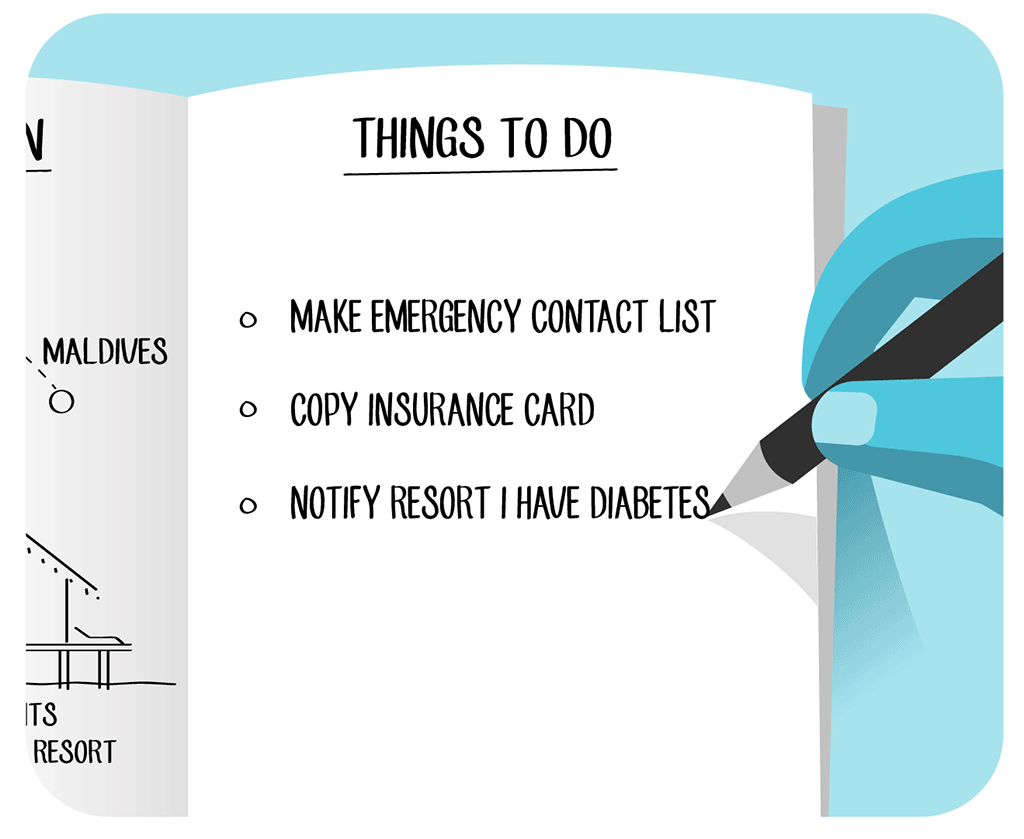
Bring a Doctor’s Note
Ask your doctor to spell out your medical needs and the supplies required. If you wear an insulin pump or a continuous glucose meter, be prepared for Airport agents to inspect these devices.
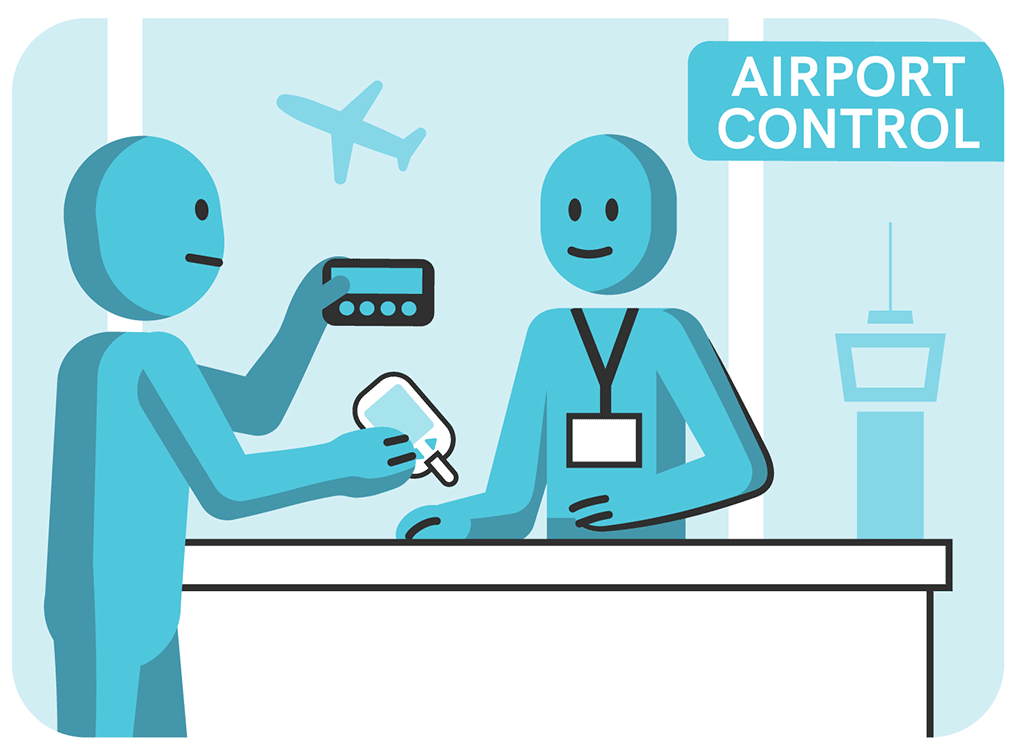
Overpack Medicines and Diabetes Supplies
You will never know when you run into a travel delay, so pack double the amount of medicine and supplies you need.
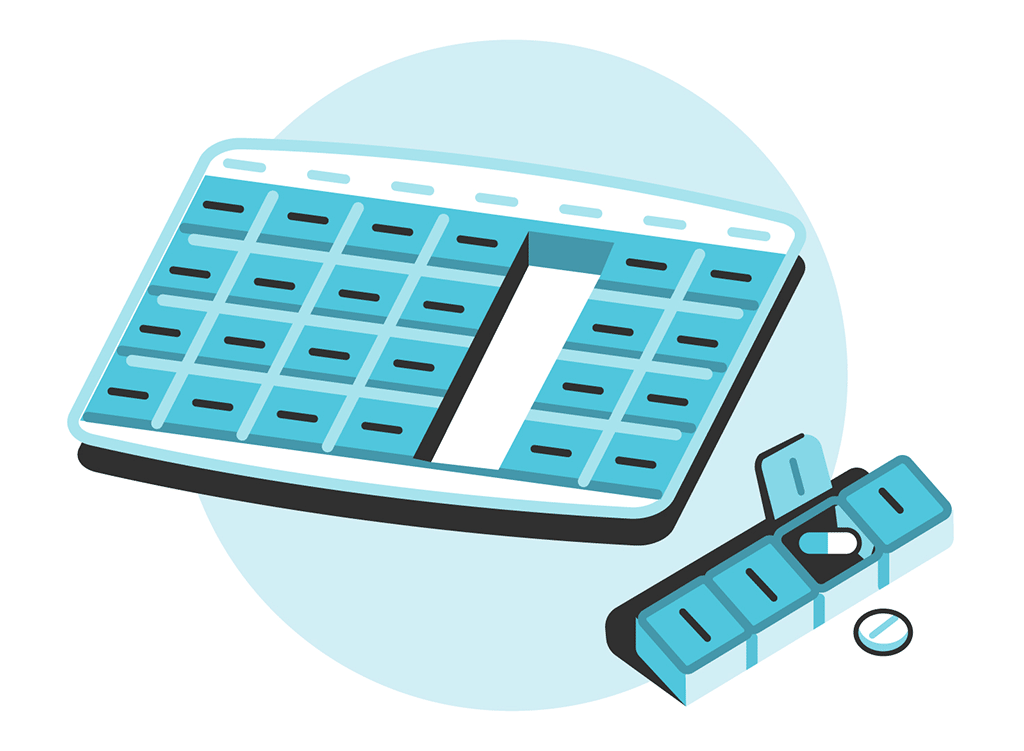
Keep You Medicines and Supplies Close
Keep your medications and supplies at hand by packing them in your carry-on bag to prevent damage and avoid losing them. Insulin, other medications, and testing supplies are heat sensitive, so avoid storing them in the trunk, glove compartment, or in the checked in bag at the airport.
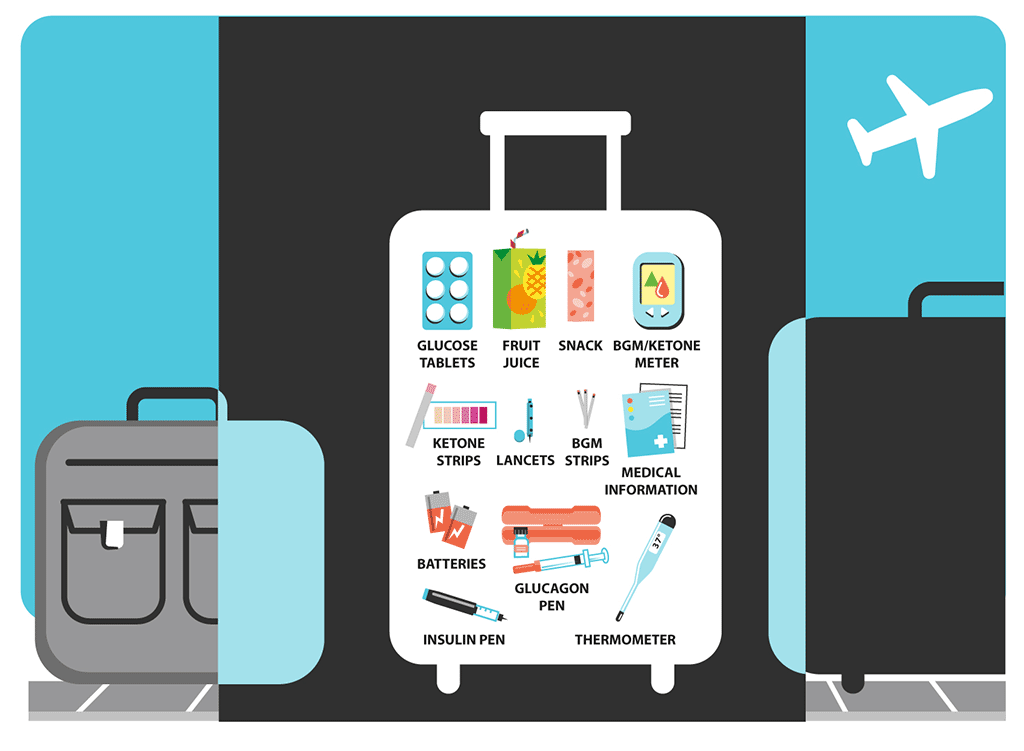
Carry Treatment and Snacks for Low Blood Glucose
Food access is often unpredictable when you’re traveling, so bring snacks that will help you with sudden hunger or treat low blood glucose. You can carry glucose tablets or glucagon spray with you, to be prepared for possible hypoglycemia.
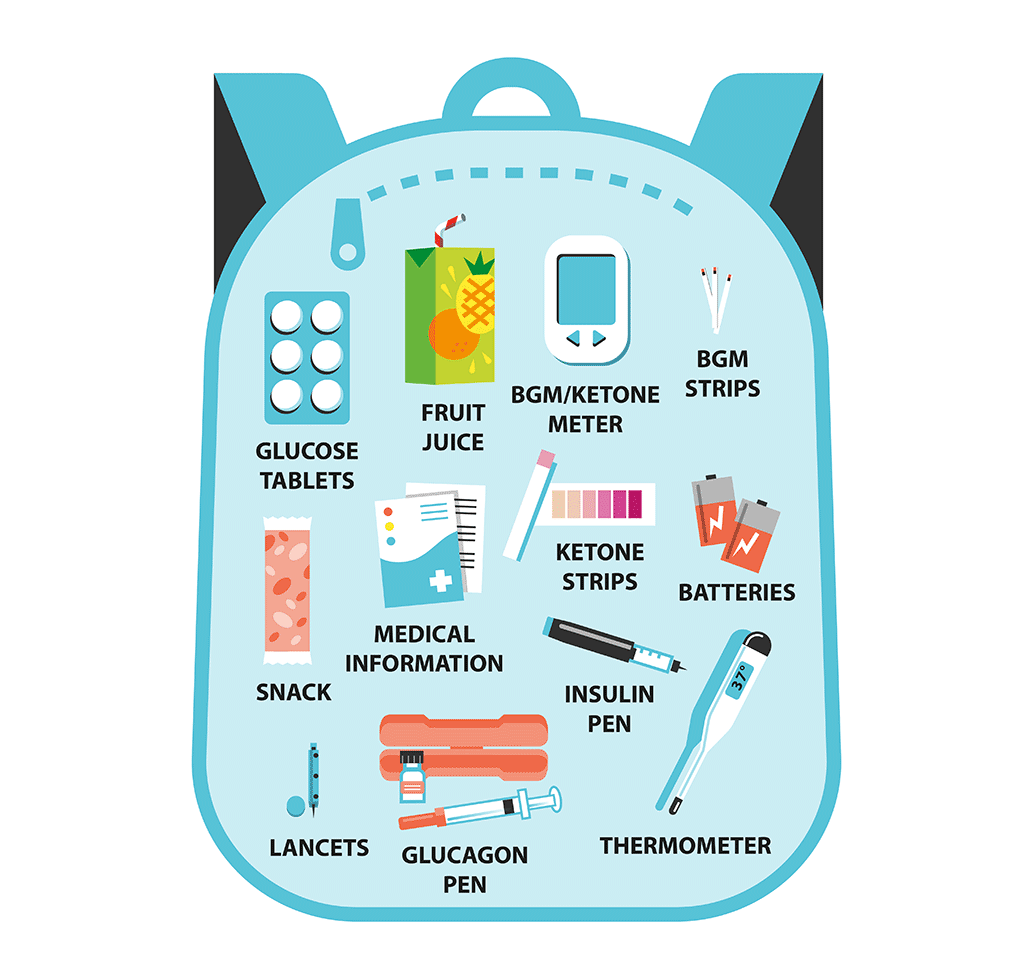
Inform the Staff That You Have Diabetes
If you are traveling alone, tell the flight attendant or conductor that you have diabetes, just in case you have a problem or need assistance.
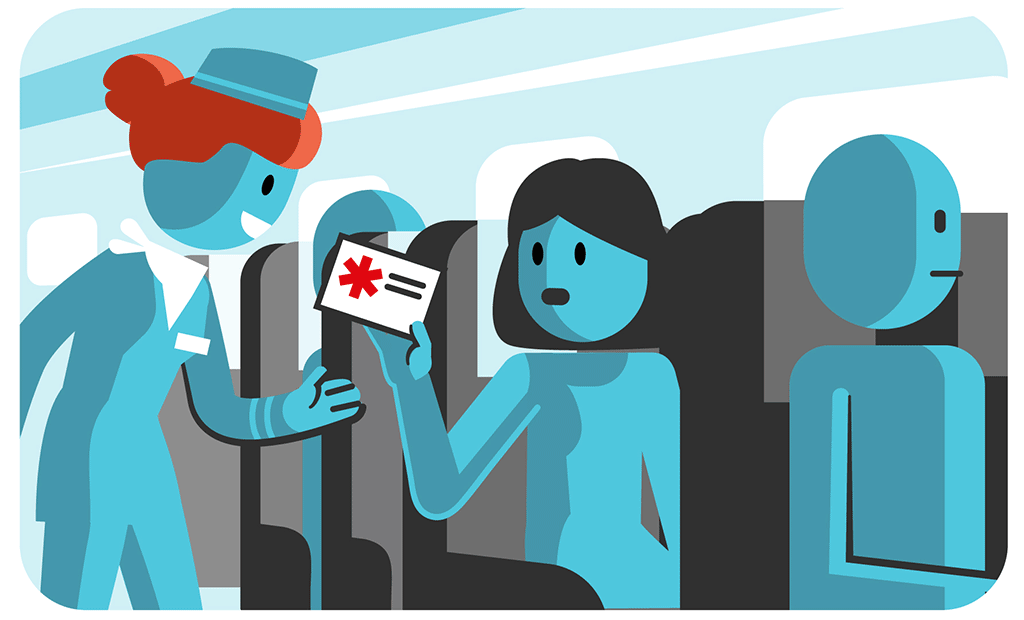
Wear Well-Fitting Shoes and Socks
Consider wearing light compression socks if you are going on long trips. Check your feet frequently for blisters, cuts or sores.
Prepare For Health Emergencies
Keep a small first aid kit handy. Prior to traveling, check out where you can find local doctors who treat diabetes.
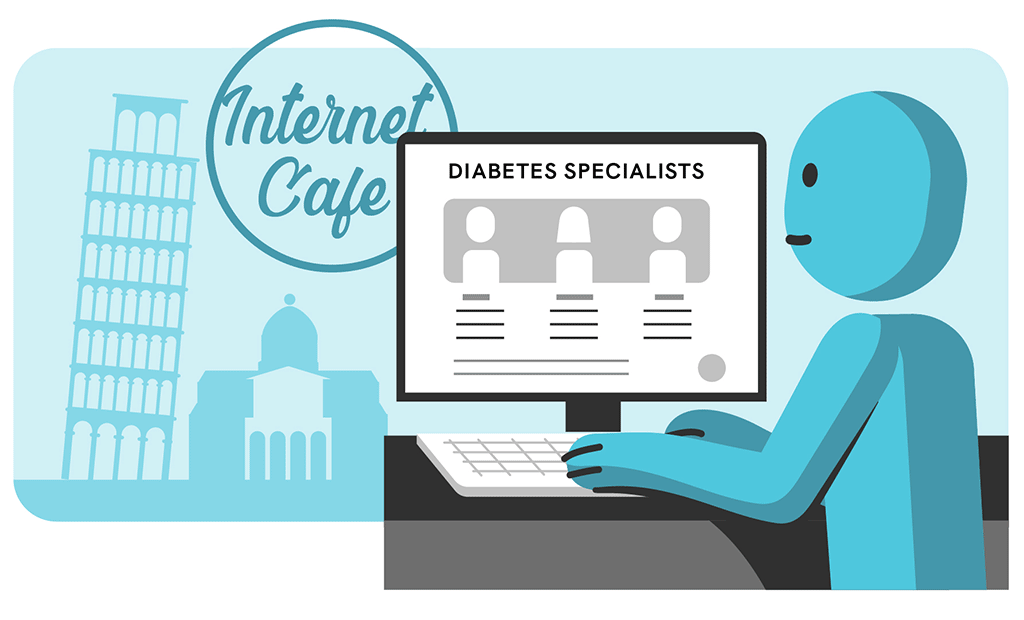
Keep a Closer Check on Your Blood Glucose
New foods, change in activity, and different time zones can affect your blood glucose, so test more frequently. Especially before and after meals and snacks.
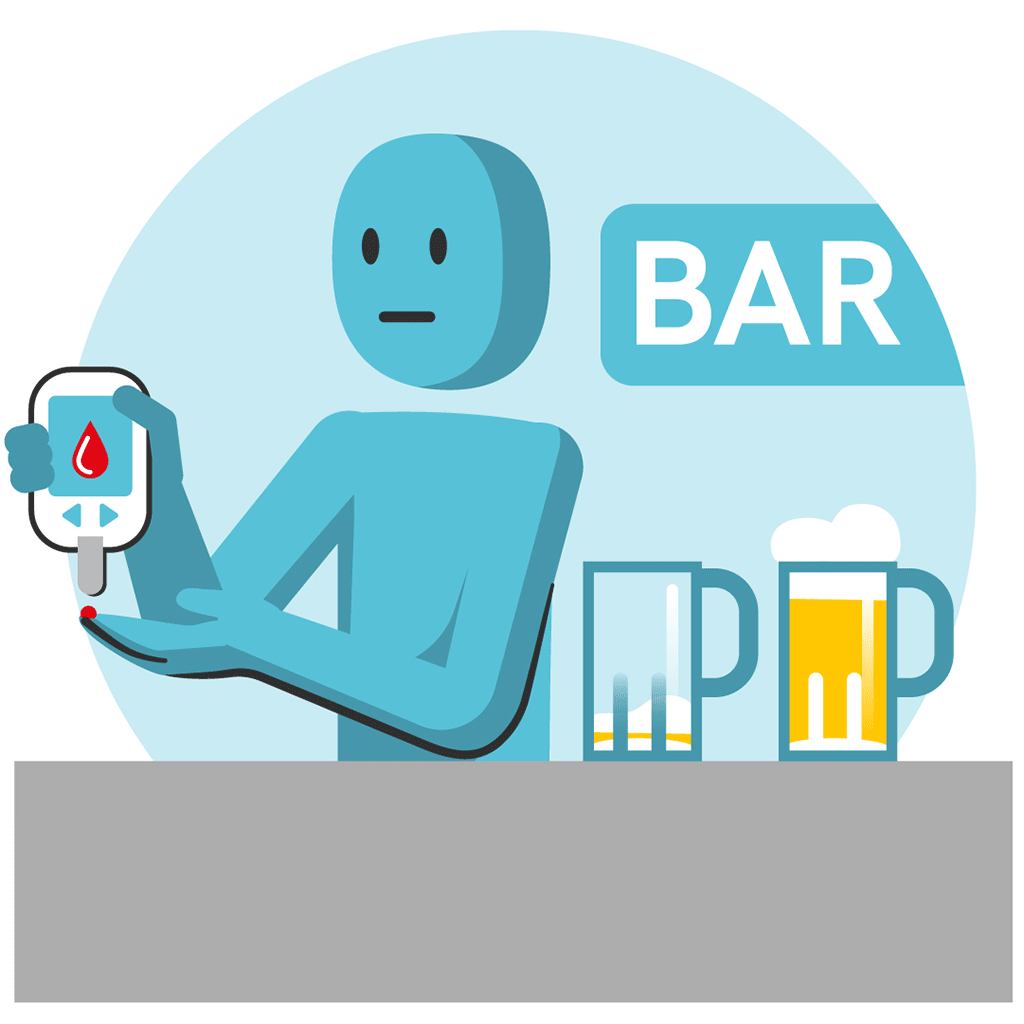
The Beat Defense is Good Offense
When traveling, try to stay as close to your usual food and medication schedule as possible. If you are taking insulin and are crossing time zones, talk to your GluCare Care Team before you go on your trip, so they can help you plan the timing of your insulin injections and meals.

Leave a Reply